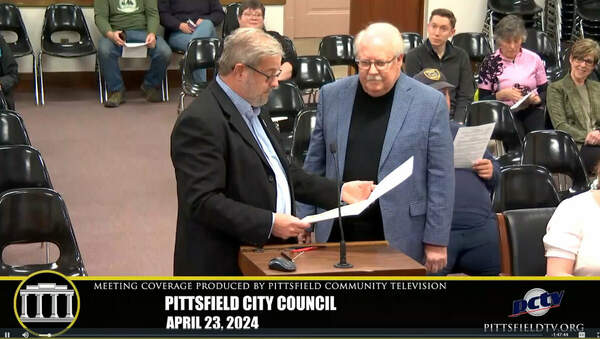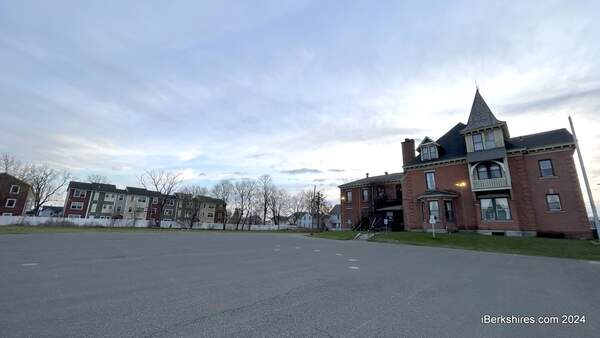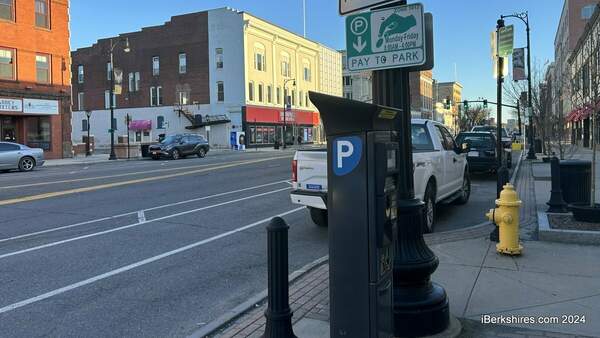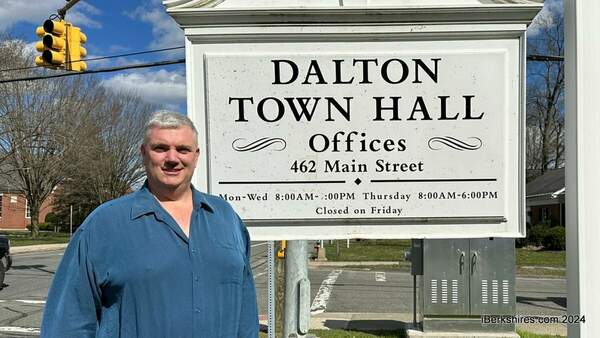Berkshire Businesses Burned by Energy Costs
 |
"If you made an announcement this afternoon that you were going to introduce legislation that would start taking a look into regulating the oil futures market in the United States, you could drive the price of oil down $10 a barrel," said the state's dean of mayors at a U.S. Senate hearing on energy costs and small businesses. "I can guarantee oil will be a $1.18 a gallon by tomorrow morning."
Oil hit a record $135 per barrel this week and local gas prices are hovering around the $4 mark — up a third over this time last year.
It is those rising prices that brought Sen. John F. Kerry to Berkshire Community College on Wednesday to find out what the cost of energy was doing to the cost of business here in the far west corner of Massachusetts.
Seated at the head table with state Attorney General Martha Coakley, a North Adams native, the senator agreed that speculation was an issue in the spiraling costs. (He told the Berkshire News Network afterward that he'd heard 40 percent to 50 percent of the cost of crude oil was caused by speculation.)
Calling oil conglomerates "drug dealers," Barrett said threats of regulation or investigation would provide the most immediate relief - a statement met with scattered applause from the 60-odd business representatives and state and local officials.
.JPG) Kerry said a Justice Department bill being introduced next week is geared to focus on the changes in oil trading allowed a few years back by the Republican-controlled Congress.
Kerry said a Justice Department bill being introduced next week is geared to focus on the changes in oil trading allowed a few years back by the Republican-controlled Congress. The now Democratic Senate has tried before to rein in prices and promote alternative energies but has been stymied by the lack of votes to push through legislation, said the state's junior senator. "We need 60 votes. I don't think people realize that."
Barring regulation, the most immediate option for businesses and residents is to conserve energy, said Kerry, and for state and federal investment in renewable options.
Massachusetts has the highest electricity prices in the nation, costing the state some 2,000 jobs because of plant shutdowns.
The high costs are hurting Berkshire businesses' ability to compete, said Berkshire Chamber of Commerce President Michael Supranowicz, especially against companies in regions with lower rates or when they're locked into contracts.
"How does Crane & Co. pass on its costs for currency to the federal government if they've already signed a contract?" he asked. "Their energy costs went up 75 percent last year."
The chamber has been putting together a electricity-buying cooperative with 50 members but it hasn't been able to land a three-year contract, said Supranowicz. "The current market is unstable and prices are above 13 cents for the price of power alone."
He related the story of a local carpet cleaning business that was running strong until gas prices soared last year. Now the family business is in danger of closing. "We need help immediately ... I cannot be more direct than that" the owner's wife wrote to Supranowicz.
Kerry sharply questioned David J. Manning of National Grid about why rates were higher in Massachusetts.
.JPG)
The utility's executive vice president said it wasn't just Massachusetts — it was the region. "New Hampshire's in much the same boat. ... part of it is the energy mix part of it is the cost to get the energy here."
The state's on the end of the line with "a badly structured delivery system," and doesn't have access to nuclear power - which has high startup costs but is cheaper over time. And part of it's simply supply and demand, he said.
Manning said Kerry was "absolutely on the right track for alternatives ... we need to provide these things for the small-business owner." For example, generating electricity and heat onsite with cleaner-burning natural gas generator; or buying more energy-efficient equipment to offset rising prices.
And the delivery infrastructure needs an infusion of millions to bring it up to date.
But for small-business owners, prices are pinching the bottom line right now. Colleen Taylor Reinhard, owner of Freight Yard Pub and Taylor's Fine Dining, both in North Adams, recounted the woes that she and others have been having.
Food prices have skyrocketed along with energy costs; up 3 percent to 7 percent this year, produce costs are eating into the marginal profits most restaurants make. Energy costs are up between 17 and 44 percent.
"Small businesses are squeezed by both of those forces," Reinhard told the hearing. "We need to raise prices to survive, but if we do so at the rate necessary, no one will be able to afford our goods and services."
.JPG) Reinhard said the restaurants generally raise prices once a year to keep up with inflation; this year, prices may go up twice. "My customers come up to me when we raise prices. I tell them I have no choice."
Reinhard said the restaurants generally raise prices once a year to keep up with inflation; this year, prices may go up twice. "My customers come up to me when we raise prices. I tell them I have no choice."Gas costs are also hampering the ability to find qualified workers; no one wants to drive to and from Pittsfield, for example. "The rise in fuel costs has just slashed the size of our labor pool."
Barrett said the fuel prices were affecting the city's budget, costing it at least two of the more than seven teaching positions cut from the school budget. Residents have been hit with rising prices and stagnant salaries.
"They're angry at the government because they say, 'how can our government allow this to happen?'" he said. "What would make the biggest difference? ... I think people would like to see somebody try to make a difference."
Coakley, who had also been contacted last year by Barrett about probing possible gas-price fixing, said it was difficult to monitor prices on pumps and any investigation would be based on the differences between stations. (This led Kerry to quip "sounds like the mayor is a one-man monitoring team.")
"We've had conversations about if there's anything we can do at the state level, to see if we can do something," said Coakley. "But we don't oversee gasoline prices generally."
Supranowicz said alternative energy was a solution that would also bring new jobs but there was opposition that would have to be overcome, such as fights over wind turbine sites.
Jef Sharp, president of SunEthanol Inc. of Hadley, urged the creation of a green research campus for alternative energy in Springfield, one that would have pavilions to showcase renewables such as solar and cellulosic fuels.
"The commonwealth of Massachusetts may not have oil wells but we do have other wells; wellsprings of creativity, educational excellence, biotechnology, entrepreneurship and passion for discovery and for deployment of ideas.
"I encourage you to engage in BIG out-of-the-box thinking."
The state is on the verge of passing an energy reform bill "that will revolutionize energy use in this state," said Ann Berwick, the state's undersecretary for energy. But the federal government has to step in as a partner to lead with "21st-century approaches to vehicle emissions" and funding for renewable energies research.
Kerry wondered how the government could best cushion the impact now: "There is not going to be a quick-hit solution here."
.JPG)
There was hope in the long term, he said, as billions is being invested in energy visionaries, investment that should have been happening years ago instead of providing subsidies to oil and gas.
Afterward, Reinhard said the problems she listed weren't just about her but about the entire North Berkshire community. "It's not just me going through this, it is the whole community going through it together."
"My biggest thing is how do I keep my employees ... how to keep them and still make money," she continued. "I believe the answer is keeping money in my customers' pockets."















